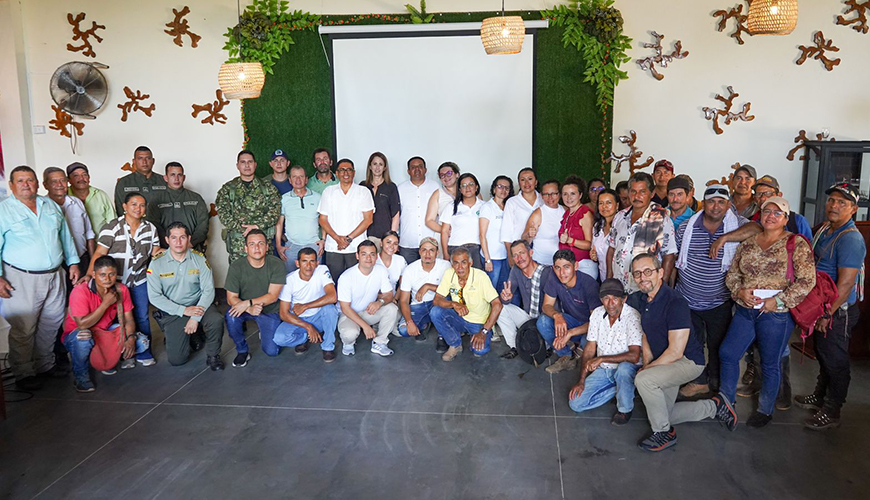Theology of creation, deforestation trends in the municipality of La Macarena, and ecosystem services and payments for environmental services were the central themes of the training process held by IRI Colombia on November 7, in the auditorium of the Hotel La Fuente de La Macarena.
60 leaders, members of the local chapters of IRI Colombia in La Macarena, La Cristalina and Alto Morrocoy attended this new educational day, in which representatives of the municipal government, the National Police and National Natural Parks of Colombia also participated. “From the Mayor’s Office we call for unity. The peasants, the public forces, the religious community, the authorities, must work together. It is the only way to face environmental challenges,” said the Secretary of Government and Mayor in charge, Eunice Ramírez Yacuma, who opened the event.
“In 2017, the United Nations convened all churches and confessions of faith, a social sector supremely important for its moral and spiritual authority and its great influence, with the purpose of joining the global effort for the protection of the environment and, especially, of tropical forests,” said the coordinator of IRI-Colombia. Blanca Lucía Echeverry, referring to the origin of the Initiative.
In addition to learning more about the mission and work strategies of the organization, attendees received a talk on the theology of creation, given by Pastor Martín Emilio Ramírez, coordinator of the three local chapters in La Macarena. “We have been using the planet’s resources for 200 years and it is time for us to give something back. It is a mandate from God, which requires us to let the Earth rest. Let’s do our homework from the heart, this is what the Initiative is about,” said the pastor of the Assemblies of God church.
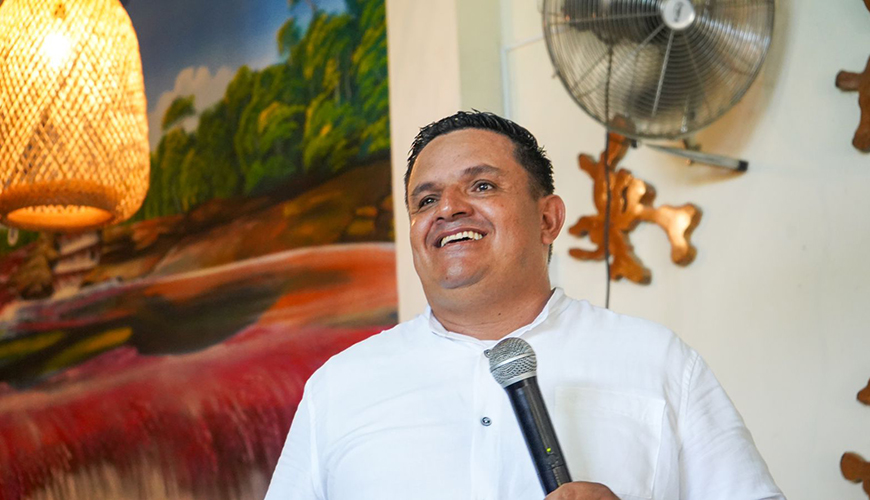 Pastor Martín Ramírez Arias, coordinator of the local chapters in La Macarena, La Cristalina and Alto Morrocoy.
Pastor Martín Ramírez Arias, coordinator of the local chapters in La Macarena, La Cristalina and Alto Morrocoy.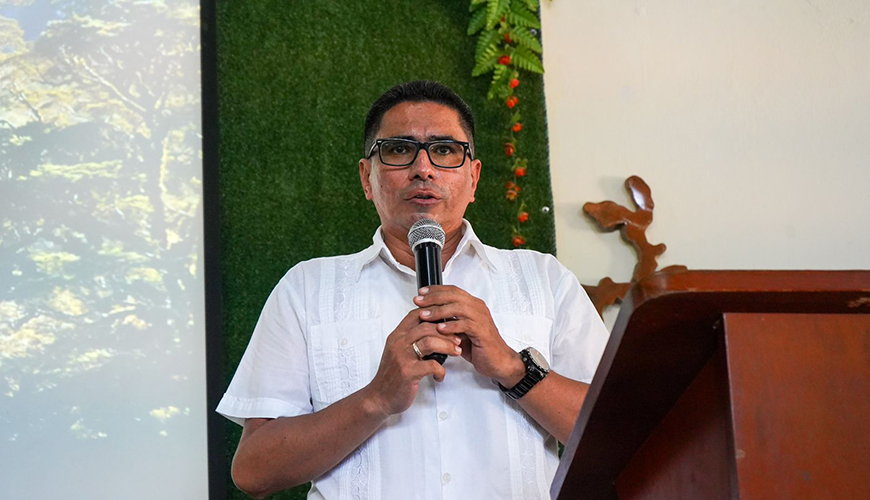 Pastor Alexander Gualteros, of the Christian Alliance Church, of La Macarena.
Pastor Alexander Gualteros, of the Christian Alliance Church, of La Macarena.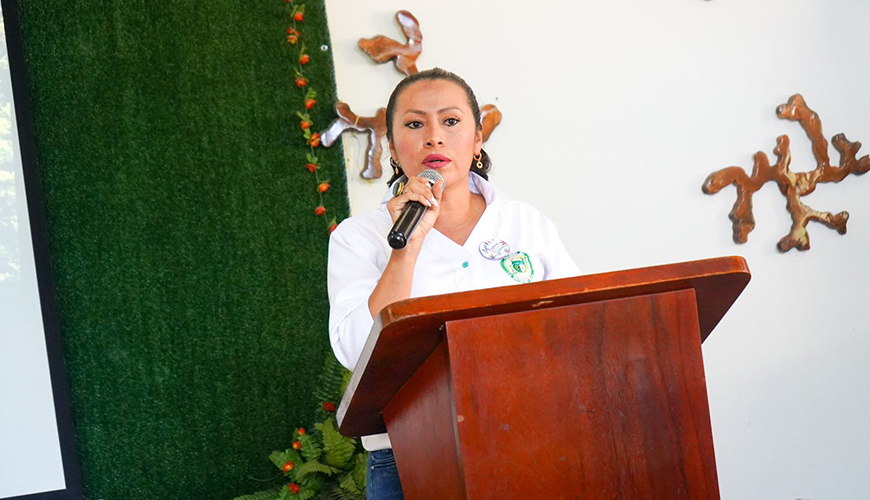 Emilse Ramírez Yacuma, Secretary of Government and Mayor in charge of La Macarena.
Emilse Ramírez Yacuma, Secretary of Government and Mayor in charge of La Macarena.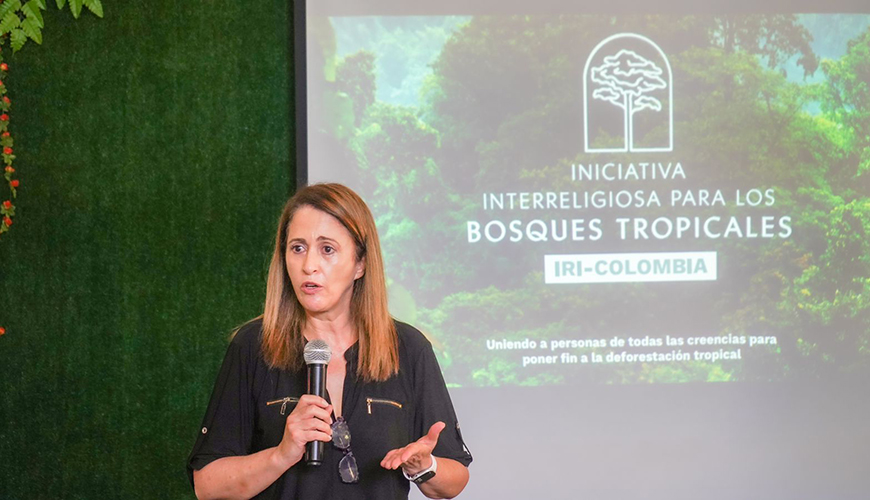 Blanca Lucía Echeverry, national coordinator of IRI-Colombia.
Blanca Lucía Echeverry, national coordinator of IRI-Colombia.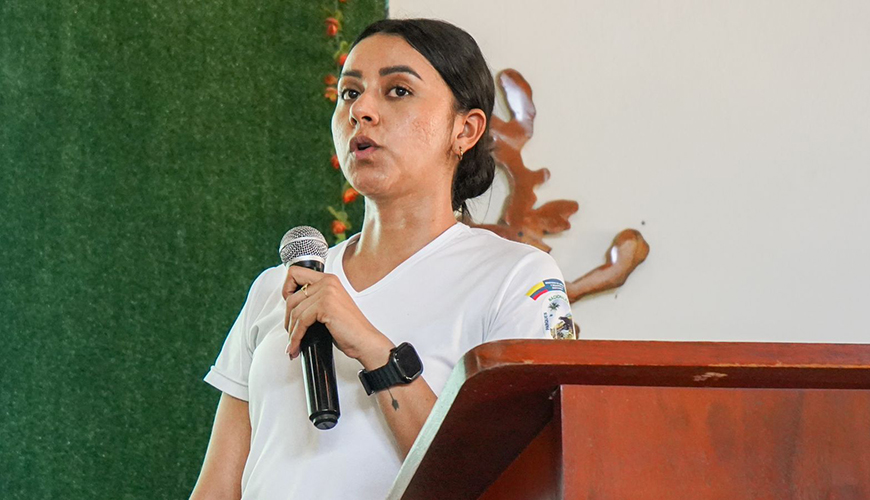 Susana Muñoz, coordinator of the Sierra de La Macarena Park office, of the National Natural Parks of Colombia.
Susana Muñoz, coordinator of the Sierra de La Macarena Park office, of the National Natural Parks of Colombia.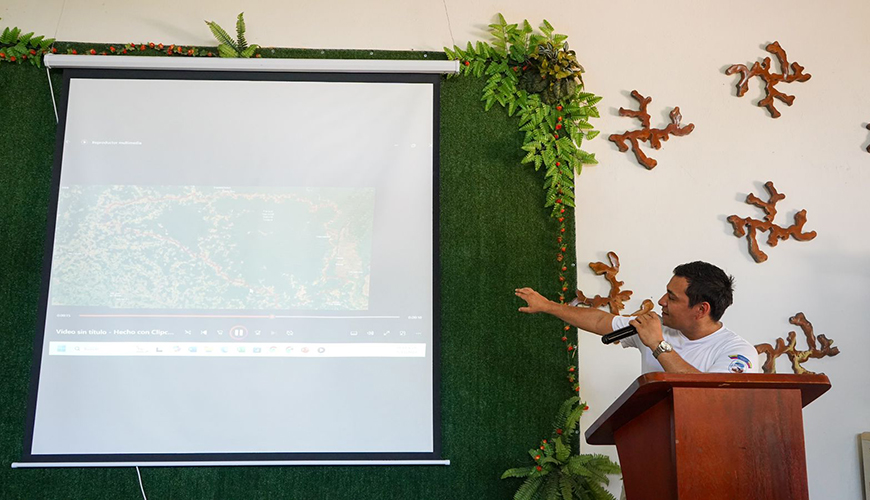 Daniel Herrera, from the National Natural Parks of Colombia.
Daniel Herrera, from the National Natural Parks of Colombia.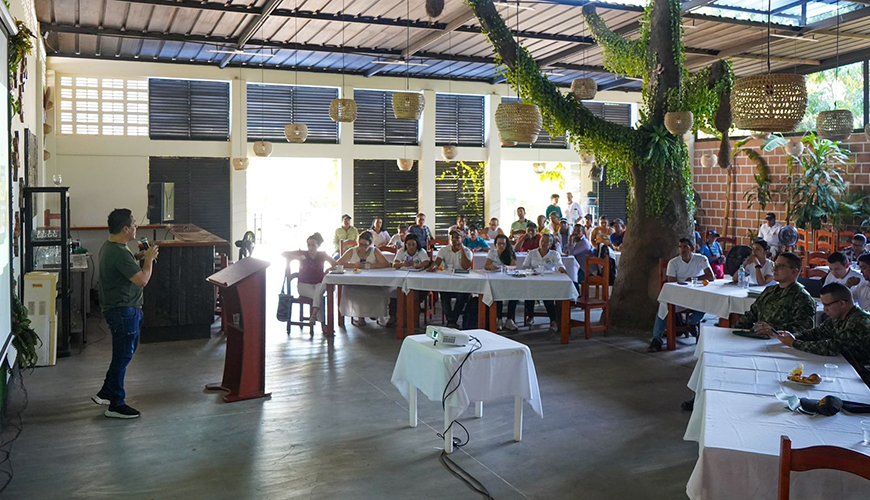
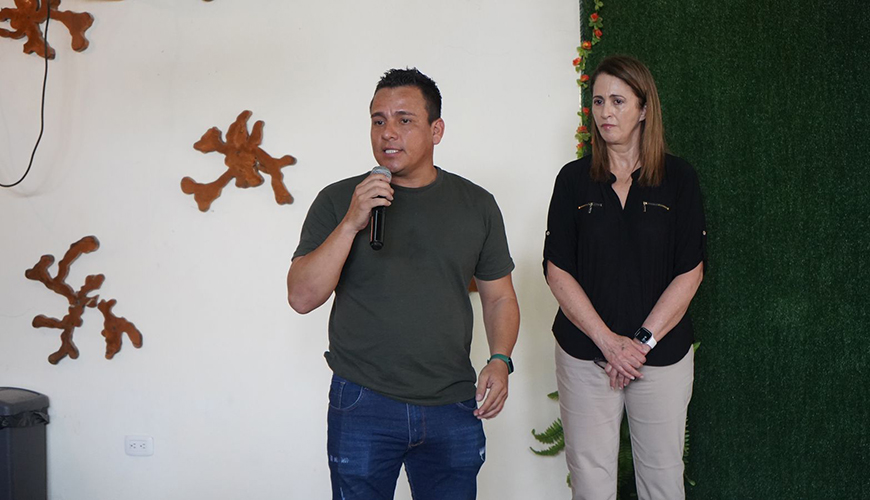 Biologist Jhoha Cárdenas and Blanca Lucía Echeverry, national coordinator of IRI-Colombia.
Biologist Jhoha Cárdenas and Blanca Lucía Echeverry, national coordinator of IRI-Colombia.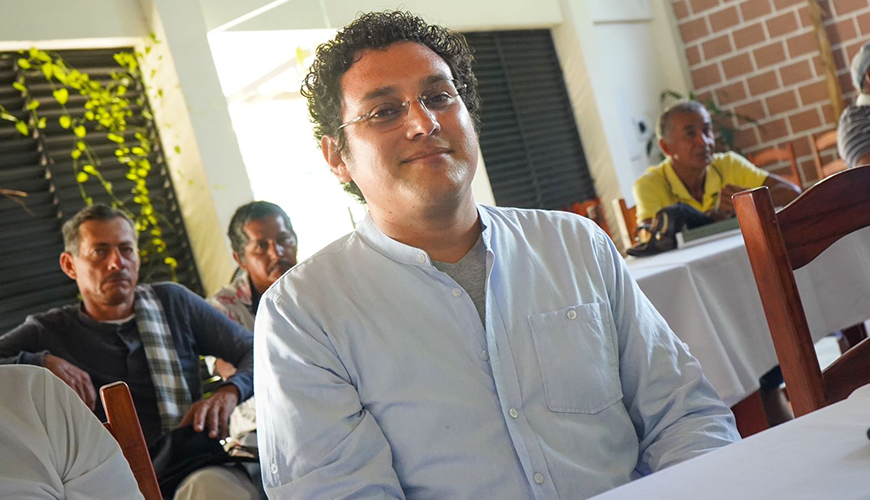 Priest Ómar Fredy Pabón.
Priest Ómar Fredy Pabón.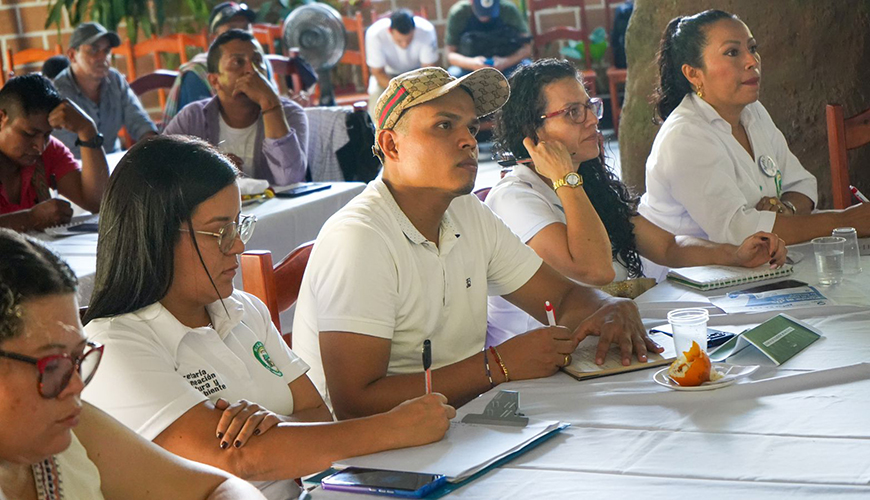 Members of the municipal government.
Members of the municipal government.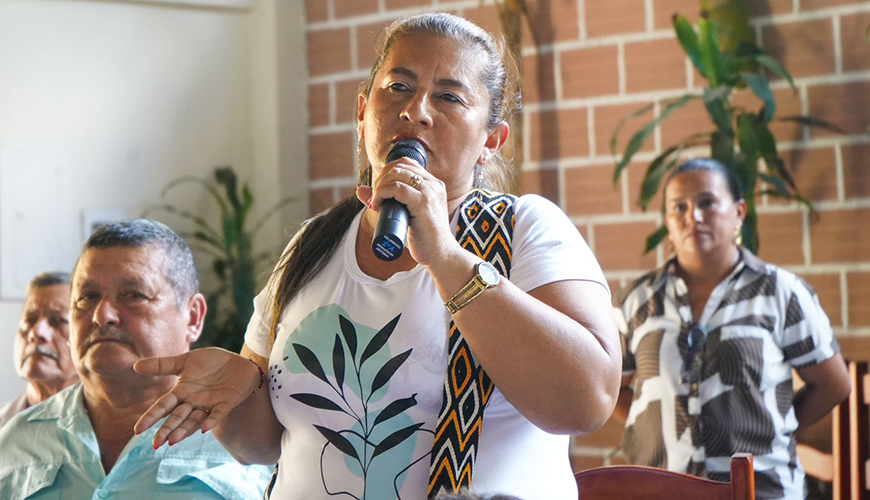
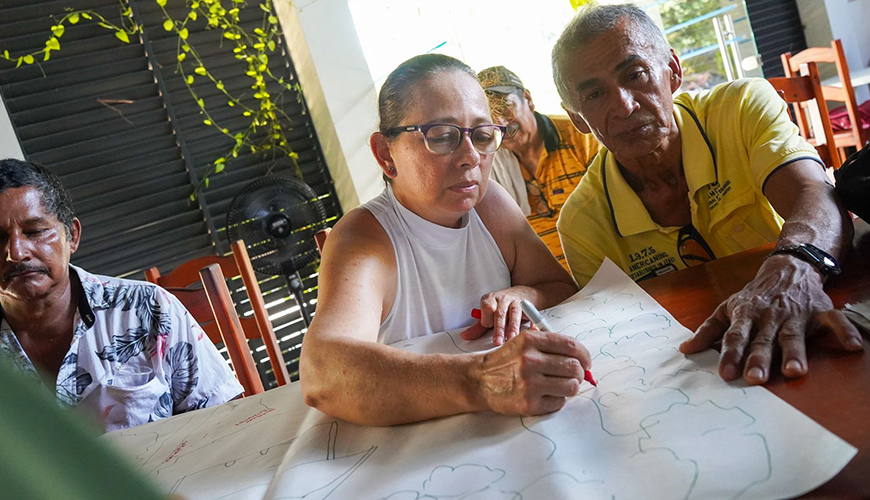
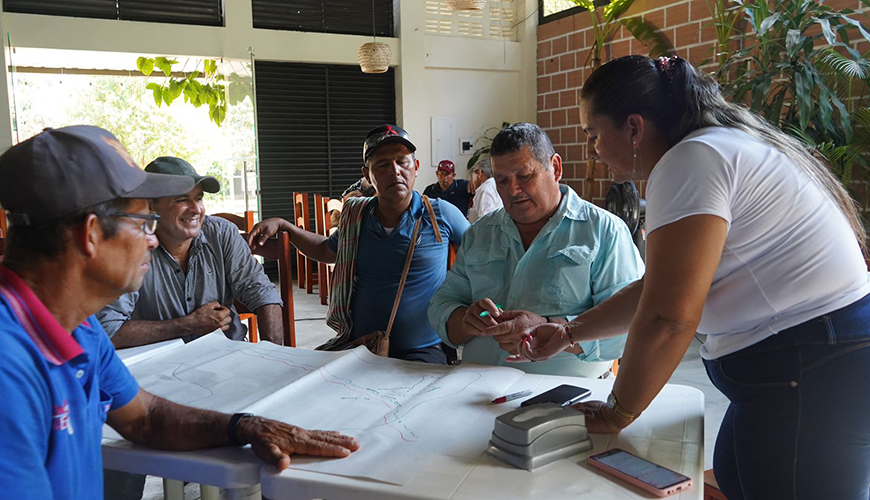
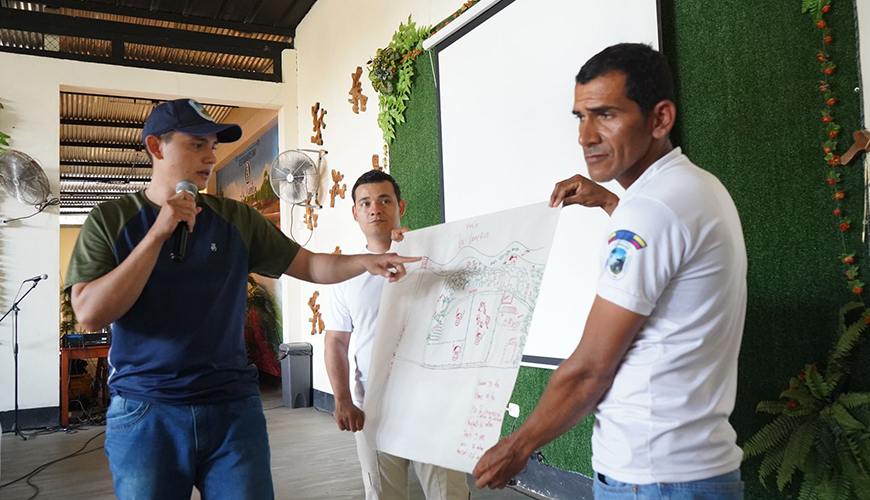
The priests and pastors, representatives of the churches and confessions of faith of La Macarena; as well as representatives of indigenous peoples and peasant and Afro-descendant communities in the region, also had the opportunity to learn about the progress and impacts of deforestation in the municipality and, in particular, in the Sierra de La Macarena and Tinigua National Natural Parks.
“The Sierra de la Macarena park is made up of different ecosystems, from humid jungle to flooded forests. Its conservation is of great importance, especially because of the connectivity from the Andes to the Amazon and the Orinoquia,” explained Susana Muñoz, coordinator of the Sierra de la Macarena Park office, who also referred to the 295 conservation agreements implemented by the environmental authority, which cover 10,249 hectares of forest in recovery.
For his part, Daniel Herrera spoke about the critical situation of the Tinigua National Natural Park, which in the last four years has lost 40,000 hectares of forest, that is, “25% of the forest that was left standing.” The territorial planning professional of this protected area also referred to the reforestation strategy based on the creation of six nurseries, thanks to which they hope to advance in the ecological restoration of the area and guarantee the connectivity of ecosystems.
Finally, the members of the three local chapters of IRI in La Macarena received a conference given by biologist Jhoha Cárdenas, in which they addressed ecosystem services and the objectives, requirements and methodologies to present projects for the Conservar Paga program, promoted by the national government in the so-called Forest Development Nuclei. and for payments for environmental services. “This is an international program, endorsed by the Ministry of Environment and Sustainable Development, which has been implemented in countries such as Uganda, Costa Rica or Peru,” said the Corpoamazonia official.
Click here to read the full Spanish edition of the November IRIboletín.

